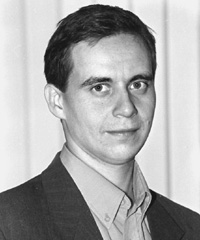It Seems We Have Started to Understand

Last week saw several simultaneous demonstrative actions. For example, President Leonid Kuchma showed the public that Ukraine is a bit tired of waiting for Moscow to display mercy and agree to free trade within the CIS. Hence, he said the CIS would be barely viable without this arrangement and was right on target. The point is that the CIS, throughout its less than protracted history, has shown that it only survives due to the colossal dependence of the other member-states on Russia. The so-called Commonwealth has never performed, and is unlikely to, any other function. That the idea of free trade in the CIS from 2000 on was stillborn and this was perhaps a foregone conclusion long before it was conceived. Moreover, even Ukraine is not Russia’s No. 1 trade partner. Conversely, Ukraine, with its disastrous unwillingness not to run up gas debts or to learn to trade with the outside world, and with its traditionally interesting system of relationships with the Russian political-business top echelons, is a perfect whipping-boy, i.e., the object of all kinds of pressure. In the long run, the existence of the CIS cannot help Kyiv solve its problems with Moscow but it can well promote its life through the idea of reconstituting Greater Russia in one form or another.
Another show was the visit of Minister of Foreign Affairs Borys Tarasiuk to Brussels, in the course of which it became clear that Ukraine is beginning to take a more realistic view of things. For example, it interprets with understanding the fact that it was not put on the list of prospective European Union members. For it turned out that this also requires at least some actions, not only endless debates on the topic. For example, such “trifles” as an almost radical reform of current legislation, the creation of normal conditions for investment, and economic growth. All this is part of EU recommendations, but I do not think the latter say that to start with we should stop scaring the world with our increasing poverty and corrupt regime as well as reject our inferiority complex vis- И -vis Russia in almost everything (perhaps except for Chechnya): for this is one of the reasons why even geographically close Western Europe, let alone faraway Pacific atolls, still do not accept Ukraine as something totally independent. Other reasons are that today’s Ukraine is only able to export its problems, it is common practice to expect this country to default on foreign obligations, our credit ratings have been dropping over the past two years, and unlike its neighbors, Ukraine failed to enlist the support of Western capital. All this by no means testifies to a genuine desire to become part of the developed world.
However, we cannot say the West is totally uninterested in Ukraine. This can be proved, in particular, by the visit of NATO Secretary General Lord Robertson, which was also a show. This proved above all the idea of one French expert: the West is again actively playing the Ukrainian card against Russia. From this perspective, Ukraine really is an important partner, but from other perspectives for the time being not.
The shows of understanding that occurred last week were, in all probability, destined to occur sooner or later. And it is obvious that much time will pass until life itself shows that Ukraine has learned well the needed lessons, which will make both Russia and the West come to the relevant conclusions. But, oddly enough, there is still hope.






